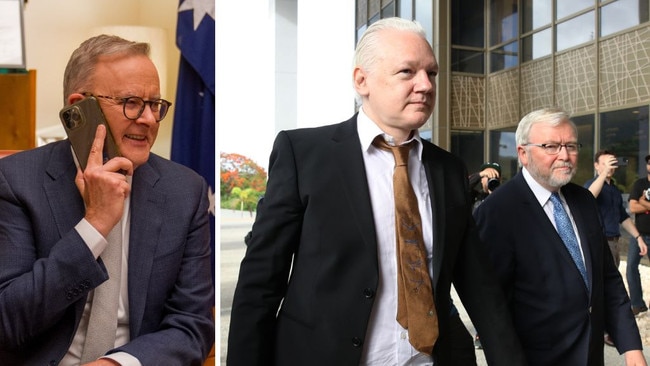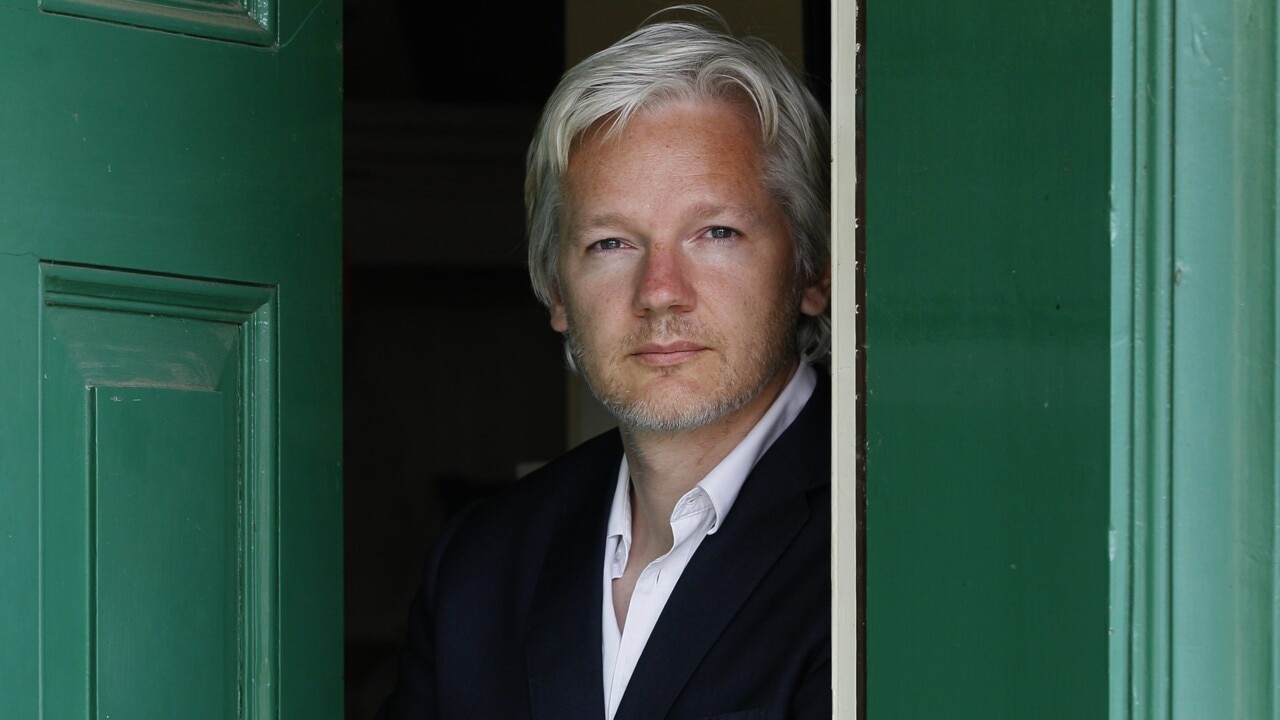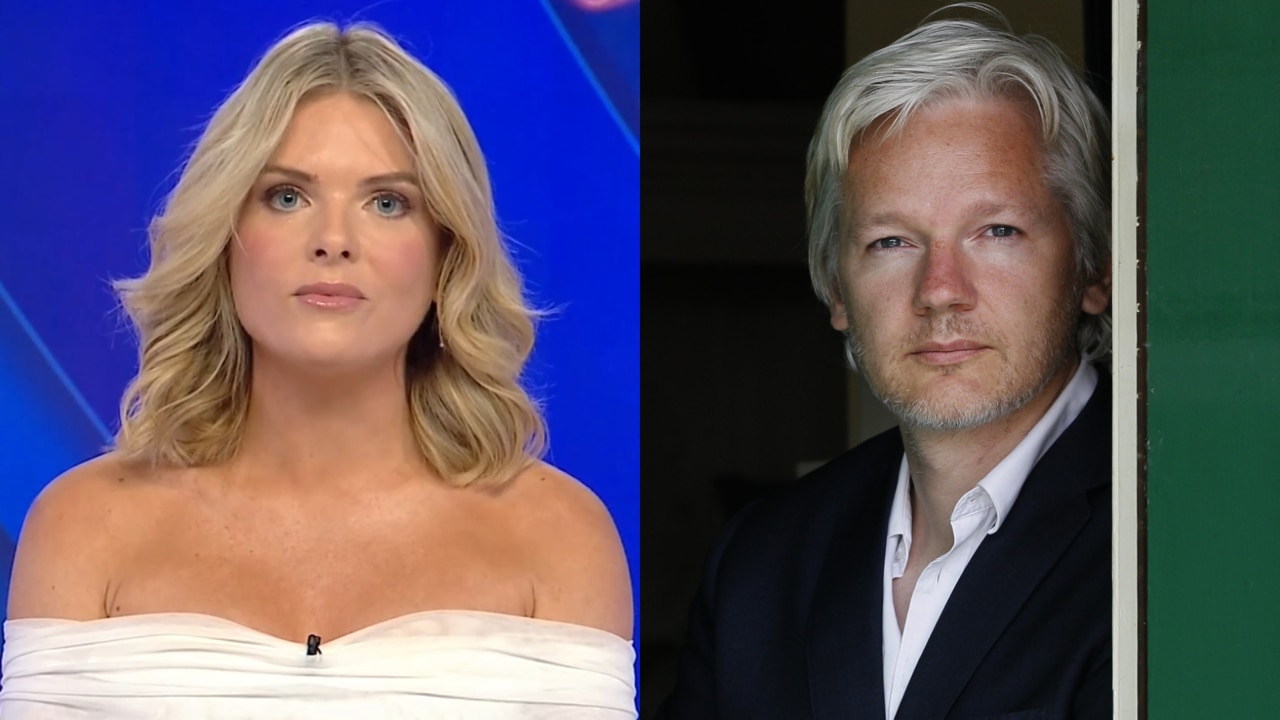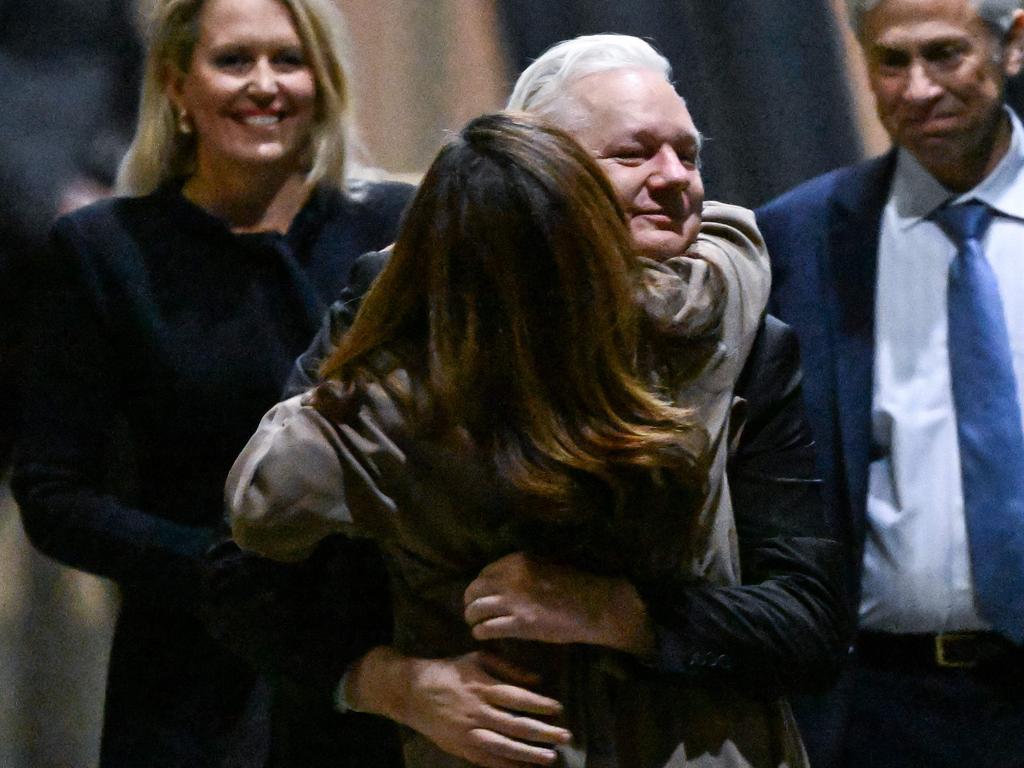The Mocker: Labor’s fanboy routine on Julian Assange shows much about its priorities


“No need,” I said amiably. “I’m Australian and know all about Julian Assange.”
His face lit up. “Australian? You support Assange, yes?”
“No,” I replied. “I could not give a rat’s about him.”
That was an edited version of what I said, but you get the gist. I have never seen a smile vanish so quickly.
I wish Assange would do likewise. But judging by the fawning last week over his return to this country, I fear this is the beginning of the Annus Assange.

It started with his flying into Canberra on private jet VJT-199, which I assume is an abbreviation for ‘Very Jovial Tosser’. So excited was Anthony Albanese he posted on X that evening a photo of himself on the phone to Assange congratulating him on his homecoming. As all informed people know, it is the job of the prime minister to personally welcome home convicted felons who commit mass espionage against our closest ally.
“I was quite pleased to be the first person here who he spoke with,” said a clearly chuffed Albanese at a press conference the next day, before assuming his customary self-congratulatory persona. “We have got this done,” he said.
And no address by Albanese is complete without a reminder of how much better he does things compared to his predecessor. “One of the things that my government does is at times as well, we don’t shout, we’re not in a contest of machismo, what we do is we get things done,” he said.
Another thing his government does well is partake in cringeworthy entourages. Feasting and joking with Assange during his return flight, US ambassador Kevin Rudd and UK high commissioner Stephen Smith looked more like a pair of infatuated groupies than senior diplomats.
The optics said much about this government’s priorities. Think back to 2016, when Richard Marles, now defence minister, called out Assange for his actions, saying he had “put a whole lot of people’s lives at risk, including those of Australian service personnel”.
That was true. Yet here were Rudd and Smith – a former defence minister – looking very relaxed as they posed for photographs with Assange. You can imagine what current and former ADF members were thinking. Think of retired major-general John Cantwell, who wrote in 2012 that Smith was not only a disengaged defence minister but also one who “had no respect for those who chose to serve in uniform for their country”.
Assange’s exacerbated legal problems were entirely of his own making. But typical of this manipulative and charismatic uber-narcissist, he makes for the quintessential victim and dictates the narrative accordingly. Albanese, for example, in arguing for Assange’s release, insisted “his case has dragged on for too long”.
But in this saga, that rationale rewarded bad behaviour. Assange unlawfully absconded while on bail in 2012 to avoid extradition to Sweden concerning allegations of rape. For seven years he remained beyond the reach of British and US authorities, which was why the US Justice Department did not formally apply for his extradition until he was re-arrested in 2019. Since then, he has used every legal means to frustrate his extradition to the US. Who was responsible for prolonging proceedings? Why, the US authorities of course, at least according to Assange’s deluded supporters.
According to one, Baywatch star Pamela Anderson, Assange was “the world’s most innocent man”. His arrest in 2019, she claimed, was a case of the UK looking for “a diversion from your idiotic Brexit bullshit”. Incidentally, last week she told the Sydney Morning Herald she had improved her advocacy skills by not “posting sexy photos on social media”.
The reason? “My intelligence was being overshadowed,” she said. I could offer something in response, but that would spoil the moment.
Assange’s time in Belmarsh Prison amounted to 1902 days, or roughly the same amount of time it took to fumigate the former Chez Julien, otherwise known as the Embassy of Ecuador, London. You might say Assange left his mark there.
The unseemly scenes of his eviction from that building said much about Assange’s character. Call him entitled, call him sociopathic, or call him a spoiled brat, but there is no dignity in kicking and screaming simply because you believe you are above the law. Remember that next time you hear Assange talk of the need to hold governments – read Western governments – accountable.
I lost count of the number of times it was said during legal hearings that poor Julian would suffer both physically and mentally if he faced justice in the US. He could be “irreparably damaged”, said Dr Alice J Edwards, UN Special Rapporteur on Torture, adding that Assange “suffers from a depressive disorder” that could lead to a “real risk of suicide”.
But Assange was indifferent to the fate of many innocents whose lives were jeopardised by the mass release of unredacted classified documents. In 2010, Amnesty International and four other human rights groups pleaded with WikiLeaks to withhold the names of Afghans working with Americans after learning that the Taliban had seized on the release information.

In an interview with The New Yorker that same year, Assange acknowledged that WikiLeaks’ actions could result in the harming of innocent people. That was “collateral damage, if you will,” he said. “In any case, we have to understand the reality that privacy is dead.”
It other words, this pesky consideration for the well-being of others could not be allowed to impede Assange’s vanity project. Among the mass of information released were the names of rape victims and psychiatric patients, as well as medical files, social security numbers, credit card details, and personal email addresses.
But the good news is privacy is making a comeback. You need only look at a joint media release last week by Albanese, Foreign Affairs Minister Penny Wong. and Attorney-General Mark Dreyfus. “As Mr Assange reunites with his loved ones in Australia, we ask that media respect his family’s privacy,” it read. Does anyone have a bucket handy?
Already there have been calls to bestow the Nobel Peace Prize on Assange. I have a compromise suggestion. If there are gongs and cash allotments to be handed out for services to humanity in this affair, then I hereby nominate the long-suffering cleaning staff of London’s Ecuadorean embassy. If anyone deserves the accolades, it is them.






Strolling through London earlier this year, I came across a group of activists urging passersby to join them in their ‘Justice for Assange’ campaign. One of their number tried to thrust a pamphlet in my hands as he began to tell me in heavily accented English about the WikiLeaks founder’s terrible ordeal.